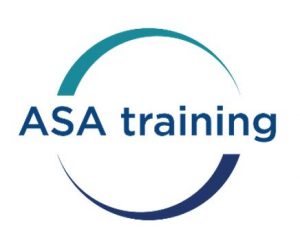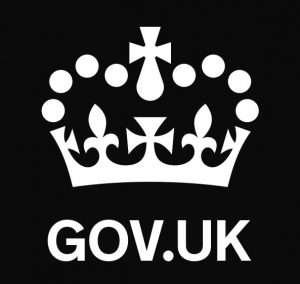9 Prospect Court, Courteenhall Road, Blisworth, Northamptonshire, NN7 3DG
t 01604 871340
w andersonstockley.co.uk
Anderson Stockley Accredited Training Ltd. Registered in England. Company No. 06422299
Registered Office: 35 St. Leonards Road, Far Cotton, Northampton NN4 BD
Anderson Stockley Accredited Training Ltd
Terms & Conditions of Business
1. In these terms and conditions “the Company” means Anderson Stockley Accredited Training Ltd (a firm). “The Client” means any person, firm, or company to whom the Company provides services. “A Proposal”, should one exist, means a written offer by the Company to perform agreed services, referred to therein at the price (or fully funded or partially funded) and in the manner detailed in any Proposal/Agreement or required paperwork and therein referred to but subject always to these terms and conditions, for and at the request of the Client.
2. Any agreement between the Company and the Client shall be subject to the terms and conditions as set out hereunder. The Company contracts upon the terms of these conditions only and any printed or other standard terms emanating from the Client shall not apply unless agreed by a Partner of the Company in writing. These conditions shall not be modified without the written agreement of a Partner of the Company. These Terms and Conditions shall be governed and construed in accordance with English Law and the parties submit to the exclusive jurisdiction of the English Courts.
3. The Company will not under any circumstances be responsible for any loss, damage or expense whatsoever suffered or incurred by the client, its staff or property, arising from or in any way connected with the Company, Assessor, Trainer, Tutor or any Client.
4. For the purposes of clarification, if a Client, or Clients employee, is in receipt of fully funded training (ie – no charge to the receiving company at all) there is no cost of any type charged to the company involved, subject to the agreed and booked training being delivered in full after being agreed and confirmed between the Company and any Client. However, if any agreed and booked funded, OR partially funded training is terminated, or cancelled, or not completed as agreed by the Client and Learner receiving the funding, then the full remaining cost of any funded, or partially funded Training programme (including Apprenticeships, NVQ’s and other funded training, is payable immediately by the Client at the discretion of the Company.
5. If any agreed and fully paid training, is cancelled or postponed within 28 working days of the commencement of the training, then the Client will be responsible for all and any costs, in full, incurred by the Company due to any cancellation by the Client within the 28 day period as costs such as venue bookings, trainer fees and the production of any training materials cannot be recovered unless the booked and confirmed training is actually delivered in full.
6. The Client shall pay the Company 100% (or part % as agreed if receiving partially funded training) of the total programme costs, at least seven working days (weekdays) before the commencement date of the services being provided by the Company and before any programme delivery can take place. This does not apply if receiving fully funded training or a payment plan arrangement has been made.
7. Any additional work carried out by the Company on behalf of the Client over and above that set out in the Proposal/Agreement, should one exist, or over and above any funded or partially funded training and agreed by the Client, will be invoiced and due for payment within the stated invoice payment terms as detailed on any invoice or as agreed between the Company and the Client.
8. The Proposal of the Company, should one exist, is open to acceptance within the period stated therein or when no period is so stated within thirty days only unless previously withdrawn. The Company reserves the right, without liability, to withdraw the Proposal/offer at any time, without any notice.
9. Where the services performed by the Company require the Company’s employees to travel to a location other than the Company’s premises the Company reserves the right to charge the costs of travel and accommodation reasonably incurred in order to perform the services, if agreed with the Client. Motor travel is charged at an agreed per mile cost to the Client as detailed in any Proposal, if applicable.
10. All Materials, Training Programme and Information used in connection with Training and Consultancy remain the property of the Company and may not be used or reproduced without prior agreement in writing by a Director of the Company.
11. It is agreed between all Clients and the Company that should the Company undertake any “recruitment” process for any client and if any person/s is/are subsequently employed by any Client as a result of any recruitment process carried out by the Company then all people or persons recruited will undertake an agreed qualification ONLY through, or via Anderson Stockley Accredited Training Ltd or an associated business, immediately after any probationary, or agreed period, if such a period exists OR one month after the commencement of employment with any Client of the Company OR within a period agreed in writing between any Client and the Company. Should any Client fail to action, implement or commence training for the employee/s as agreed and described above that Client will be liable to a fee payable for the recruitment of any/all employee/s supplied/recruited via the Company. The fee will be £1500.00 + vat for each employee recruited by ASAT Ltd. Further, should the company undertake administrative procedures for the recruitment process and the Client fails to provide feedback on applicants/does not notify the Company of withdrawing vacancy adverts – an administrative fee will be charged, currently at £500.00 + VAT.
12. One postponement of any confirmed and booked training is acceptable provided the Company receives from the Client at least 28 working days (weekdays) notice in writing prior to the date of the commencement of the Company’s services and another date is available in the Schedule of the Company to re-book the training. A postponement of training within 28 working days (weekdays) of the commencement of the Company’s services is deemed to be a full cancellation and the full fees for the Company’s services, or any agreed funded training, or any costs incurred by the Company are payable immediately by the Client.
13. A second postponement of any training is deemed to be a cancellation and the full fees for the Company’s services, or costs incurred, are payable immediately by the Client, whether any training is funded, or part funded, or fully paid. If cancellation of confirmed and booked training occurs within 28 working days (weekdays) of the commencement or delivery of the Company’s services to the Client or the cancellation and/or postponement is in addition to any previous postponement or cancellation, then the Client shall pay the full and agreed cost of that training and/or any costs incurred in addition to that of any previously postponed or cancelled training that has been booked and confirmed and has incurred, non recoverable costs to the Company.
14. All expenses and/or allowances as agreed between the Client and the Company shall be payable to the Company within the stated invoice payment terms for services of the Company to the Client. All invoices for accepted services are to be paid within the stated invoice payment terms for services of the Company to the Client (maximum of 30 days unless otherwise agreed in writing).
15. In the event that any due payment of invoices is not received within the stated payment terms, as shown on the invoice, the Company reserve the option (at their discretion) to withdraw, suspend or cancel any outstanding training or programmes and invoice the client with the full costs of such training costs, or programmes, or costs incurred and/or additional charges, as shown below.
16. The Company shall always be afforded reasonable opportunity to amend (at its option) any perceived defect in the services or goods being provided, or delivered, before being in breach of any contract/agreement.
17. Statements and or conditions made in any written form supplied by the Company form part of the Company’s trading terms.
Appointments and Meetings
18. In person appointments & meetings. In the event that any agreed and confirmed appointment/exam/test is arranged between the Company and any Client/Learner, or prospective Client/Learner and any member or employee of the Company attends that agreed and confirmed appointment at any Client or prospective Client premises and the Client/Learner or prospective Client/Learner fails to attend or be present at the agreed time, or does not allow any agreed programme continuation, appointment/exam/test to take place then the Company reserve the option of levying on the Client/Learner or prospective Client/Learner charges for time and travel at the following rates. Motor travel at 50p per mile, plus VAT. Public transport at cost. The rate of charge to the Client/Learner or prospective Client/Learner for each member or employee of the Company engaged in attending any agreed and confirmed appointment will be £100.00 per hour, per person, plus VAT, for each hour or part hour that each person is engaged for the purpose of attending any agreed and confirmed appointment. All time spent travelling will also be charged at the rate of £75.00 per hour, per person, plus VAT. Charges will be payable within seven days. Any Learner that cannot attend an arranged and confirmed appointment/meeting/exam/test must contact the Company or their designated Assessor by TELEPHONE and confirm by EMAIL at least 48 hours prior to an arranged and confirmed meeting/exam/test. Failure to do this will incur charges as set out above + an additional charge of £75.00 + vat for the cost of re-sitting any exam, or test, that is booked, missed, or deferred, for any reason as costs are incurred in booking all exams. Should a programme be booked, agreed, started and subsequently postponed/cancelled, the Company will charge the Client for the time, travel and any costs incurred and/or as described above. Should any invoice remain unpaid or not be paid on time, the Company reserve the right to discontinue/stop/cancel/not start any training or programme associated with any Client that has failed to pay any invoice or charges on time.
19. Remote appointments. In the event a Client/Learner fails to attend a pre-planned remote appointment via Microsoft Teams or Zoom for example, then we reserve the right to pass on a fee to the Client/Learner at a rate of £75 to cover losses and administration cost for re-organisation where appropriate. The company reserves the right to use discretion when charging a Client/Learner for a missed appointment and will consider mitigating circumstances, impact to the company and to the Client/learner involved. Client/learner will be referred to the Appointment cancellation policy.
20. Exams and re-sits. If a learner on an apprenticeship requires an examination associated with a mandatory qualification within their apprenticeship, the company will fund the examination plus one re-sit as this is covered by the associated government funding and employer contribution agreed at the start of learning. In the event the learner requires further re-sits of an examination then these will be charged at £75 + VAT to cover the cost of the examination, invigilation and administration and these costs are chargeable to the Client. If a learner on any non-government funded qualification requires an examination the company will fund one attempt and any re-sits will be chargeable at a rate of £75 + VAT to the Client/Learner.
21. In the event that any completed qualification induction has been undertaken by the company with the Client/Learner – and the Client/Learner discontinues progression immediately after a completed induction/or before a further visit can evidence learning progression, the Client will be liable to a fee payable to the Company. The fee will be £300 + VAT for each learner inducted by ASAT Ltd.
Administration Charges
22. The company will apply an administration fee to the client/learner under the following circumstances: amendments to client/learner details, records to be searched for historic information/documents. In the event the client /learner fails to inform the company of mandatory changes, and replacement documents, cheques payable (if applicable) need to be reissued, an administrative fee will be charged, currently £25.00 for each amendment required. This is not inclusive of certificate amendments, which are charged by the awarding body per certificate required.
Late Payment of Invoices
23. Should a Client fail to pay within the stated invoice payment terms, for services of the Company, supplied to the Client and additional costs are incurred to the Company in the recovery of any fees payable to the Company by the Client then those costs are added to the fee being recovered, plus an additional percentage, being the current base rate, plus 10% of the total amount outstanding, plus VAT. Should a Client fail to pay all monies owed to the Company within the stated invoice payment terms (MAXIMUM OF 30 DAYS UNLESS OTHERWISE AGREED IN WRITING) the Company reserve the
option to levy on the Client an additional percentage, being the current bank base rate, plus 10% of the total amount outstanding, plus VAT.
Overdue Invoices
24. Should any Client fail to pay all invoices within the stated invoice payment terms or within agreed terms of payment then all outstanding invoices issued to the Client become payable immediately, at the discretion of the Company, regardless of stated invoice payment terms and in addition the Company reserves the option to levy on the Client an additional percentage, being the current bank base rate, plus 10% of the total outstanding, overdue invoices, plus VAT.
Should any Client fail to pay all invoices within the stated payment terms Learning Provision will be suspended until full payment is made – including any interest incurred.
24.1. Should late payment of an invoice impact on funding compliance rules and it is necessary for induction to be completed again, a fee will be incurred for the previous induction being void – currently compliance requirements allow for two months from induction date. The Company reserve the option of levying on the Client/Learner or prospective Client/Learner charges for time and travel at the following rates. Motor travel at 50p per mile, plus VAT. Public transport at cost. The rate of charge to the Client/Learner or prospective Client/Learner for each member or employee of the Company engaged in attending any agreed and confirmed appointment will be £100.00 per hour, per person, plus VAT, for each hour or part hour that each person is engaged for the purpose of attending any agreed and confirmed appointment. All time spent travelling will also be charged at the rate of £75.00 per hour, per person, plus VAT. Charges will be payable within seven days.
Refunds
25. If in the event an apprentice leaves programme earlier than the original planned end-date and the Client has paid a contribution towards the funding then as per DfE funding rules, any reimbursement for employer co-investment made for learning paid for, but not undertaken; or learning delivered, but not yet paid up to the employee’s leave date, is calculated and returned to the employer within 90 days of the apprentice leaving programme. If a learner leaves an apprenticeship within 42 days from the start date, then the Company is subject to a clawback of funding from the DfE and the Client will be liable to pay £300 + VAT to cover the otherwise eligible and funded Company costs up to that point.
26. If an apprentice reaches their original planned end-date and funding has been used, then we may negotiate a cost to the extension of delivery for that apprentice. In these circumstances if the learner then leaves before the new planned extension end-date or does not complete then this is non- refundable.
27. Any privately funded training or services provided in agreement with a Client, then terminated less than 28 days from the planned commencement or not completed, is non-refundable.
All invoices issued on strict terms and do not allow for late payment or extended credit.







